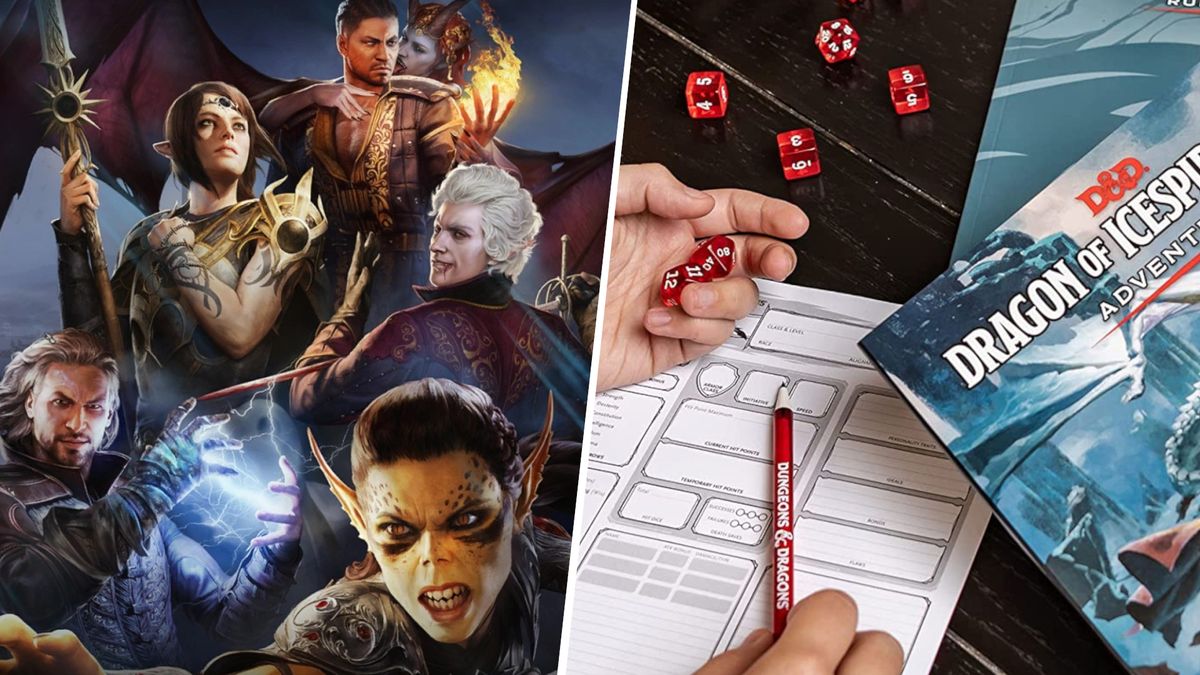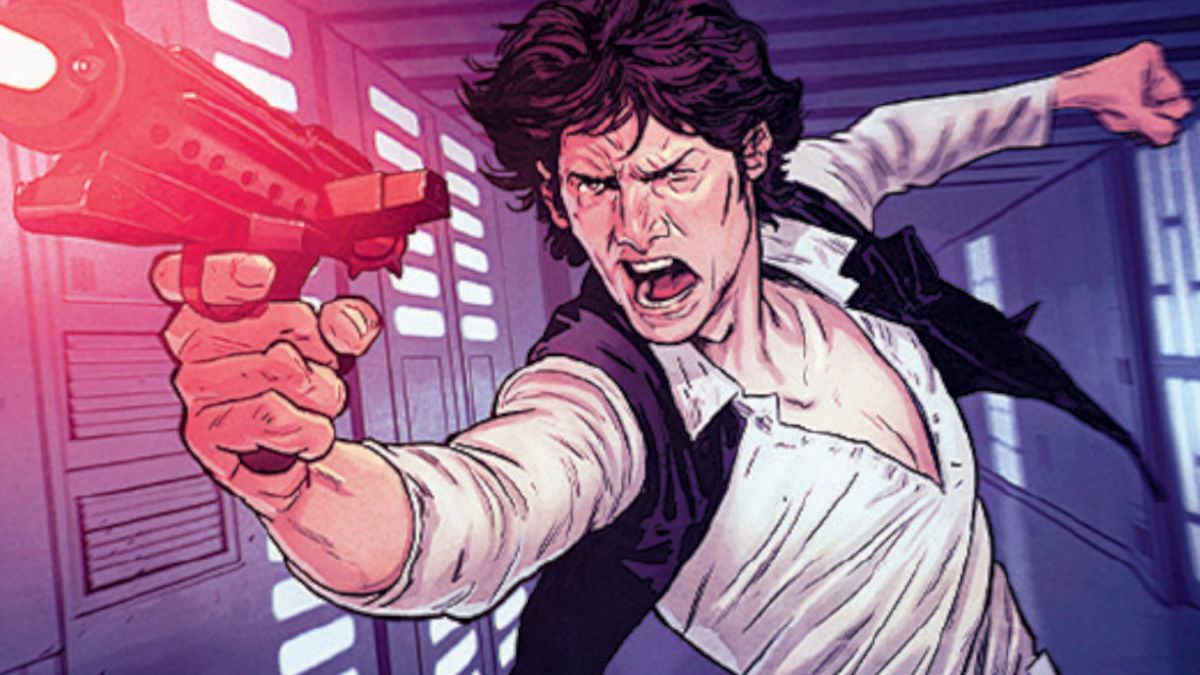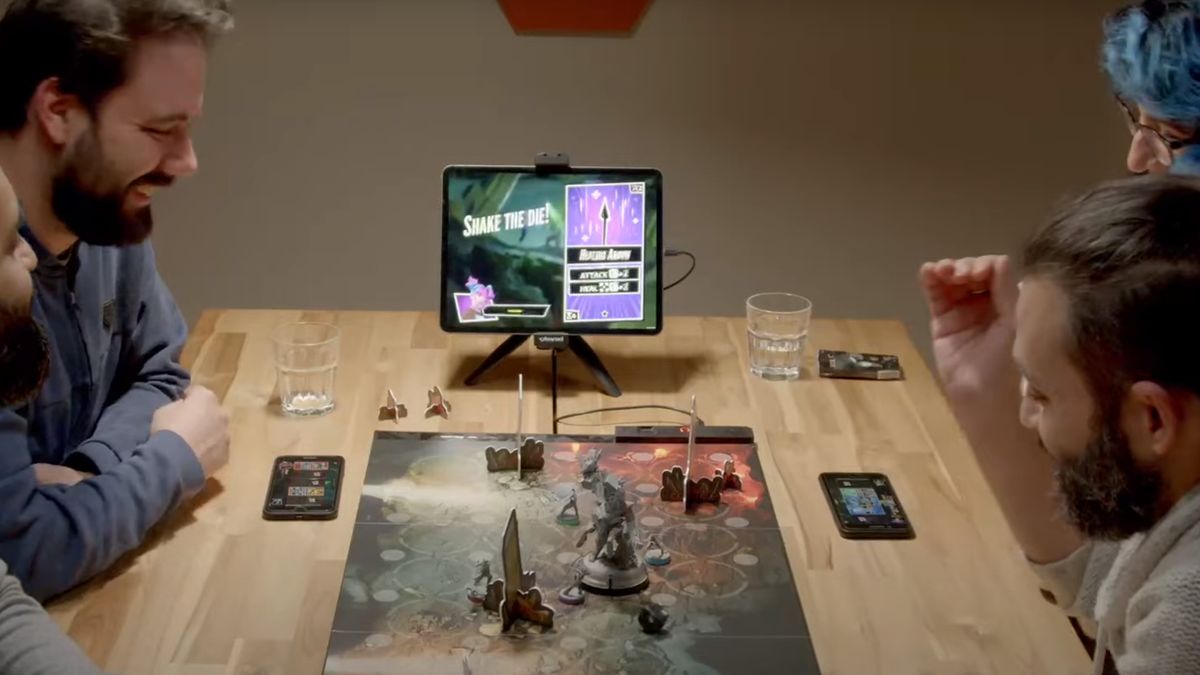Most of Games Workshop’s flagship systems are open-table miniatures games that involve a ruler and a line of sight stick, but Warhammer Underworlds: Harrowdeep is different. Although it has the publisher’s trademark eye-catching figures, it’s a fully-fledged board game with hex movement and a deck of cards that each player needs to build before play.
Fundamentally, Warhammer Underworlds: Harrowdeep is a starter set that introduces you to the game. And no, you don’t have deja vu; there have now been a number of starter sets (which include their own boards, dice, cards, and models) alongside a great many expansions. This is just the latest beginner box. However, it tries to do something different by taking the action into a sinister underwater labyrinth.
What is it, and how does it work?

Essential info
– Game type: Skirmish wargame
– Players: 2
– Difficulty: Moderate
– Lasts: 30+ mins
– Ages: 12+
– Price: $95 / £65
– Play if you enjoy: Warhammer: Age of Sigmar, Warcry: Red Harvest, Godtear, The Elder Scrolls: Call to Arms
Warhammer Underworlds is a skirmish board game for 2 players, a genre lousy with quality titles. Each player takes all the figures of a warband and sets them up on the hexagonal-space board. The game itself unfolds across three turns of four figures activating per side, one at a time. Following an activation, there’s a power step where you can play cards. At the end, you tot up victory points to see who wins. Simple.
The factions of Harrowdeep are equally clear-cut. There are two warbands here: Xandire’s Truthseekers (noble, knight-like Stormcast Eternals) alongside Da Kunnin’ Krew (a motley band of wicked Orruks and Hobgrotz). As you’d expect from Games Workshop, the figures for both are of superb quality, and they’re push-fit for a relatively easy build. You’ll still need a craft knife at the very least, though.
Sting in the tail
An activated figure can do one of four things. Move and attack are self-explanatory, while Guard gives a defensive bonus if the model is attacked in turn. At the other end of the scale is Charge, and it provides a combined move and attack with a sting in the tail; once a figure has charged it can’t do anything else that turn. It’s a simple menu of options with profound consequences.
No matter what you choose, combat is handled by custom dice where both attacker and defender roll, hoping to get the necessary hit or defend symbols. There’s a clever twist in that some symbols only count if a figure is supported, which means having another friendly figure in a hex adjacent to the combat. This rewards forward planning and manoeuvre, while still leaving lots of excitement on each dice roll.
The deck of cards you’ll use for each game is something you can build yourself, trying to match your favoured tactics with the abilities of your fighters. Alternatively, you can choose a pre-built recipe from the publisher. Cards come in several flavours: Gambit cards, which are one-off powers, Upgrades that buff a fighter, or Spells. The latter tend to be more powerful but need dice rolls to succeed.
Games are fast, swingy, and very tight, with a satisfying balance of strategy
You also have another deck – objective cards – as well, which you can construct yourself or take a pre-built option. These generate the glory points that win the game, and they’re surprisingly diverse; it’s quite possible to have your warband wiped out and still win if you handle objectives well.
All warbands have access to cards that score points for controlling objective hexes on the board, but they have flavourful faction-specific options too. The Orruks, for example, can score points for hiding behind cover or for ganging up on an opponent, as befits their sneaky nature.
Is it any good?

Games Workshop has released a lot of board games over the years, of variable quality, but in Warhammer Underworlds, they discovered a system worth supporting for the long haul. Games are fast, swingy, and very tight, with a satisfying balance of strategy. Dice can keep you in the game if you’re doing badly, but a well-constructed deck and good on-board manoeuvre will tend to win the day. And if not, well, it’s so quick that you can just re-rack for another game.
In terms of positioning, the temptation of Charge and the bonuses provided by support set up a strategic triangle to exploit. If you Charge headlong into battle you won’t be able to count those handy support die faces when you roll. And while Charge is the most efficient action, if you fail to knock out an enemy figure, you’ll be in trouble. It’s hard to score a kill from one attack, and it leaves your opponent space to use their activations to get support in place and counter-attack multiple times.
The included warbands are unlikely to excite the more experienced
At the same time, you need to keep a very close eye on your cards. Three rounds of four activations are next to nothing to work with, and that’s a big part of what keeps the game feeling like a breathless knife fight. Every card play has to count, particularly in terms of setting up and scoring objectives. But you’ll need to take full advantage of whatever gambits and upgrades you draw as well.
Tilting toward the hardcore
What really sets this game apart is the interplay between these two aspects. You can score points without fighting, but you’ll still need to get your warriors into the right places at the right times to fulfil the objectives you’ve drawn. That becomes a lot easier if you can support your moves with gambits and buffs. You draw a fresh set of both each turn, so the parameters of the puzzle are ever-changing, along with dice rolls and board position.
These core systems in Warhammer Underworlds are excellent, but veterans returning to Harrowdeep will note that the rulebook has grown from 32 pages to a whopping 52. Some of this is background fluff and some of it is diagrams and flowcharts for clarity. But most of it is the combined weight of options and edge cases from five core sets and over a dozen warband expansions. The game just doesn’t feel as clean and accessible as it used to, and is tilting toward hardcore fans over new players.
What’s in the box?

– 52-page rulebook with rules, lore, and art
– 9 unpainted miniatures (Xandire’s Truthseekers and Da Kunnin’ Krew)
– 2 double-sided game boards
– 11 dice, 48 cards, and tokens
This sense is exacerbated by the sheer amount of cards in the box, offering overwhelming deck construction options for newbies. At the same time, the included warbands are unlikely to excite the more experienced. They don’t offer much that’s truly novel – indeed, that would be hard work after all the warbands that have come before. Nor are they particularly powerful, falling comfortably in the middle of the overall power range. And while the included cards are more of a draw, the card back art has changed, meaning you’ll need to use opaque sleeves on your whole deck if you want to mix it up with cards from older sets.
Overall – should you buy Warhammer Underworlds: Harrowdeep?

While Warhammer Underworlds is an excellent system that’s well worth your time, Harrowdeep itself is a harder sell. Newcomers may find the weight of rules and cards overwhelming and are better off with the Starter Set or the previous core box, Direchasm. Players familiar with the system won’t find a lot of novelty to expand their collections, on the other hand.
Either way, if you do invest, you can still enjoy painting and modelling the superb figures.
The Verdict
3.5
3.5 out of 5
Warhammer Underworlds: Harrowdeep
A mediocre edition of a great game. You can skip Harrowdeep, but don’t let that put you off Warhammer: Underworlds as a whole.
 Games News games, movies and TV you love.
Games News games, movies and TV you love.



